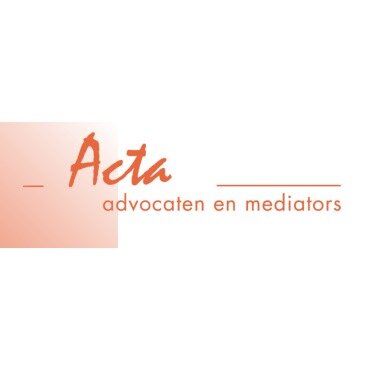Best Private Client Lawyers in Netherlands
Share your needs with us, get contacted by law firms.
Free. Takes 2 min.
Or refine your search by selecting a city:
List of the best lawyers in Netherlands
About Private Client Law in Netherlands
Private Client law in the Netherlands encompasses a range of legal services focused on the needs of individuals and families. This area of law is particularly relevant to matters such as estate planning, inheritance, succession, trusts, tax issues, family wealth management, prenuptial agreements, and matrimonial property. Legal professionals in this field advise and assist clients with personal assets, the transfer of wealth, and the protection of family interests. Dutch Private Client law often intersects with international matters, especially for clients with cross-border connections or assets.
Why You May Need a Lawyer
There are many situations where a Private Client lawyer in the Netherlands can provide valuable guidance, such as:
- Drafting or revising a will or prenuptial agreement
- Planning for inheritance and wealth succession
- Resolving disputes regarding inheritance or family assets
- Navigating Dutch inheritance tax and related regulations
- Arranging power of attorney or guardianship for vulnerable family members
- Protecting family business interests during succession
- Handling divorce or marital property division, especially with international elements
- Settling cross-border estate matters
- Establishing trusts or foundations for asset protection
Legal advice ensures your wishes are properly documented, tax liabilities are minimized, and family disputes are prevented or resolved efficiently.
Local Laws Overview
The Dutch legal system has several unique aspects relevant to Private Client matters:
- Forced heirship rules: Dutch inheritance law includes mandatory portions of the estate that certain relatives (such as children) are entitled to receive, regardless of will arrangements.
- Inheritance tax: The Netherlands imposes inheritance tax on the transfer of assets, with rates depending on the relationship between the deceased and beneficiaries.
- Community property system: Marriages automatically fall under a limited community of property unless a prenuptial agreement specifies otherwise, affecting ownership of assets and inheritance rights.
- Recognition of foreign wills: The Netherlands recognizes international wills, but certain requirements must be met for validity and execution.
- Guardianship and adult protection: Special rules exist for appointing guardians and managing affairs for minors or incapacitated adults.
- Registration requirements: Some documents, such as wills and prenuptial agreements, must be executed before a Dutch civil law notary and registered accordingly.
- Foundations and trusts: Though trusts are not native to the Netherlands, foundations (stichtingen) are commonly used for asset protection or charitable purposes.
A lawyer with expertise in Dutch Private Client law can explain how these rules affect your personal circumstances.
Frequently Asked Questions
What is the difference between a will and a testament in the Netherlands?
In the Netherlands, the terms are used interchangeably. Both refer to a legal document where you specify how your estate should be distributed after your death. It must be executed before a Dutch notary to be valid.
Who is entitled to a share of my estate by law?
Under Dutch law, children and spouses have a legal right to a minimum share of the estate (forced heirship). You cannot fully disinherit them without special legal grounds.
Do I need a notary to make a will or prenuptial agreement?
Yes, both documents must be executed before a Dutch civil law notary to be legally valid in the Netherlands.
What are the inheritance tax rates in the Netherlands?
Rates depend on the relationship between the deceased and beneficiaries. Children and spouses generally pay lower rates than other relatives or unrelated beneficiaries. The rates range from 10 percent to 40 percent, depending on several factors.
Can I set up a trust in the Netherlands?
Trusts are not recognized under Dutch law, but similar objectives can be achieved through foundations (stichtingen) or by using trusts governed by the law of another country.
How is marital property divided in the Netherlands?
If married without a prenuptial agreement, most property acquired during the marriage falls under limited community of property, shared equally upon divorce or death. Property acquired before the marriage or by inheritance usually remains individual property.
Is foreign property included in a Dutch estate?
Yes, Dutch inheritance law considers the worldwide assets of the deceased. However, international estates often involve complex cross-border legal and tax issues.
Can I disinherit my children or spouse?
Dutch law provides forced heirship rights. Children and spouses cannot be fully disinherited unless there are exceptional circumstances, and even then, legal procedures must be carefully followed.
Who manages my affairs if I become incapacitated?
You can appoint someone through a power of attorney, or the courts can appoint a guardian or mentor for you. Legal advice helps ensure these arrangements are properly documented.
Are Dutch wills recognized internationally?
Dutch wills may be recognized in other countries, but some jurisdictions require additional steps for execution. Consulting a lawyer helps ensure your will is valid both in the Netherlands and internationally.
Additional Resources
For more information or guidance on Private Client matters in the Netherlands, you can consult the following organizations:
- The Royal Dutch Association of Civil-law Notaries (KNB) - guidance on notarial procedures and finding a qualified notary
- The Dutch Tax and Customs Administration (Belastingdienst) - information on inheritance and gift tax
- The Dutch Bar Association (Nederlandse Orde van Advocaten) - directory of legal professionals and lawyers
- Council for Child Protection (Raad voor de Kinderbescherming) - for guardianship or child welfare issues
- The judiciary (Rechtspraak) - information on legal proceedings and family court matters
Consulting these sources or contacting relevant professionals can provide clarity on your specific situation.
Next Steps
If you need legal assistance regarding Private Client matters in the Netherlands, consider the following steps:
- Identify your legal needs, such as will drafting, estate planning, or marital property arrangements
- Gather relevant documents and information, such as property deeds, tax records, or previous agreements
- Contact a specialized Dutch Private Client lawyer or notary with experience in your specific area of concern
- Schedule a consultation to discuss your objectives and receive tailored advice
- Follow through with recommended legal actions, such as drafting or updating documents, ensuring proper registration, and complying with local laws
Seeking professional advice early can prevent complications and provide peace of mind for you and your family.
Lawzana helps you find the best lawyers and law firms in Netherlands through a curated and pre-screened list of qualified legal professionals. Our platform offers rankings and detailed profiles of attorneys and law firms, allowing you to compare based on practice areas, including Private Client, experience, and client feedback.
Each profile includes a description of the firm's areas of practice, client reviews, team members and partners, year of establishment, spoken languages, office locations, contact information, social media presence, and any published articles or resources. Most firms on our platform speak English and are experienced in both local and international legal matters.
Get a quote from top-rated law firms in Netherlands — quickly, securely, and without unnecessary hassle.
Disclaimer:
The information provided on this page is for general informational purposes only and does not constitute legal advice. While we strive to ensure the accuracy and relevance of the content, legal information may change over time, and interpretations of the law can vary. You should always consult with a qualified legal professional for advice specific to your situation.
We disclaim all liability for actions taken or not taken based on the content of this page. If you believe any information is incorrect or outdated, please contact us, and we will review and update it where appropriate.
Browse private client law firms by service in Netherlands
Netherlands Attorneys in related practice areas.
Browse private client law firms by city in Netherlands
Refine your search by selecting a city.

















